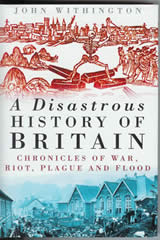During the Great
Plague of 1665, which killed perhaps one person in five in London, lockdowns
were a bit more brutal. People found to be infected were locked up in their
houses with their families.
In its early
stages, the government also closed ale houses and brought in some restrictions
on street-vendors. But the death toll grew alarmingly, even though there were suspicions
that many plague deaths were being attributed to other causes.
The more prosperous
folk were relieved that the disease seemed to be hitting only the poorest
districts, and in May, London theatres were still packed. But as more and more
people died, in June, warders were put around the worst-hit area to try to stop
the inhabitants getting out. Still the disease spread, and the King and court upped
sticks.
By the end of June,
the theatres were closed, and the streets were jammed with coaches as most of
the aristocracy fled, though the Lord Mayor stayed, conducting business from
inside a glass case.
In July, the
disease really took hold, with more than 5,500 deaths, and the diarist Samuel
Pepys (pictured) set his affairs in order, mindful that ‘a man cannot depend on living two
days’. August and September were the worst months. London was a ghost town,
with only ‘poor wretches’ on the street, and Pepys noting that he could walk
the length of usually-bustling Lombard Street, and see only 20 people.
By September, most
of the doctors had gone, the Royal College of Physicians was deserted, and
there was not a lot of sympathy when it had its valuable treasures stolen. The
authorities were supposed to provide food for those shut up in their houses,
but by now the money had run out, victims were beginning to resist, and the
practice had to be abandoned.
The usual sounds of
one of the world’s great cities had been replaced by the endless tolling of
bells and the rumbling of the carts collecting corpses to the cry of ‘bring out
your dead!’ Grass grew in the streets, and Pepys lamented ‘how empty and
melancholy’ they were, while a puritan preacher said that every day he heard of
the death of at least one person he knew.
For more, see London’s Disasters (The History Press).




















